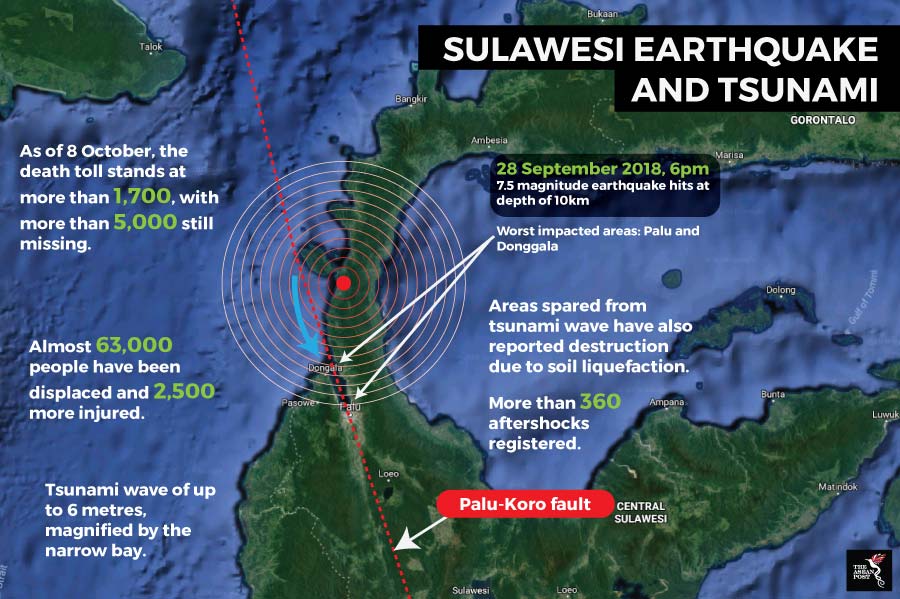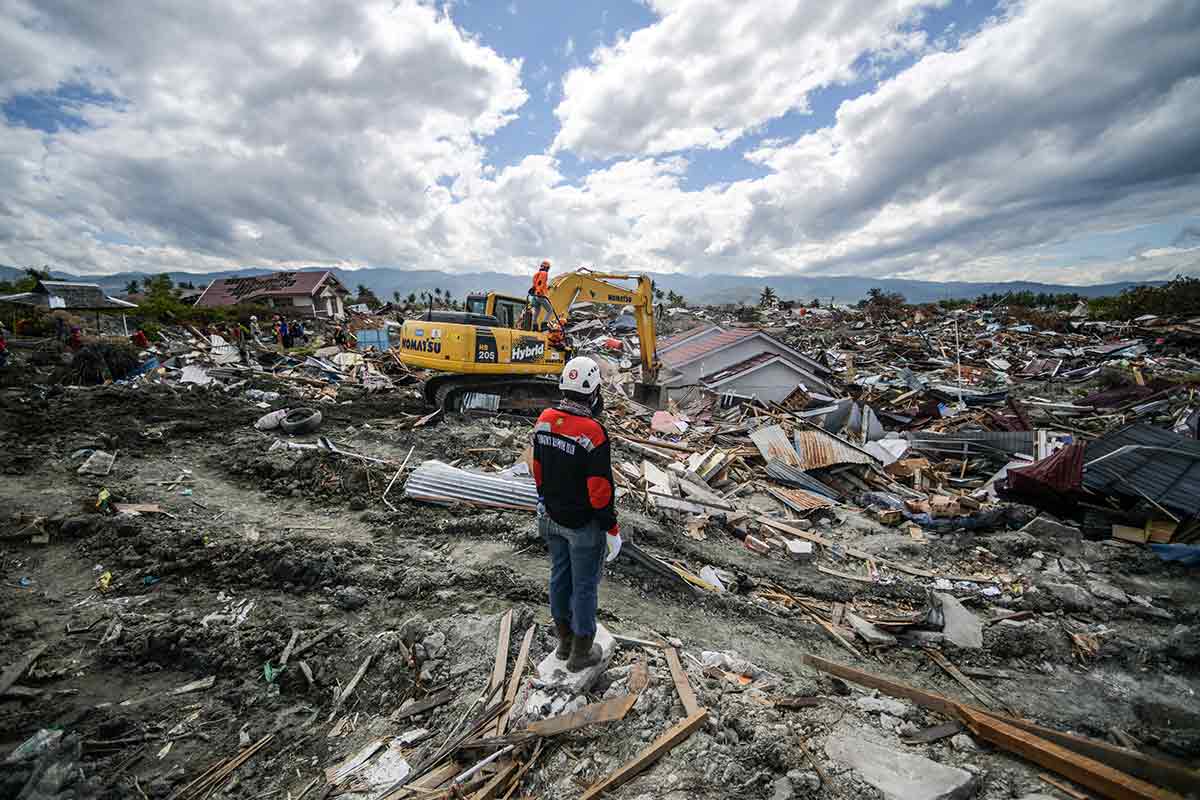Days after the 7.5 magnitude earthquake rattled the Indonesian island of Sulawesi, triggering a huge tsunami and soil liquefaction that massacred the coastal cities of Palu and Donggala as well as surrounding areas, President Joko "Jokowi" Widodo authorised the acceptance of urgent foreign aid for humanitarian efforts in the province.
According to the Indonesian disaster management agency, more than 1,700 bodies have been recovered so far as a result of the destruction that struck the Sulawesi island on 28 September. Officials have warned the death toll may increase as the number of people believed missing from the quake and tsunami still remains high.
As death and injury tolls rose to the thousands, foreign governments and humanitarian organisations welcomed the government’s decision to accept foreign aid, pledging aid and sending disaster rescue and relief teams to the affected areas overwhelmed by the shortage of food, water, medical supplies, shelter, and fuel.
However, reports have surfaced that arrivals of international teams to provide search and rescue assistance have been delayed and obstructed partly by the arrival of foreign personnel who were not qualified to lend support to the disaster-stricken areas. To ensure this does not continue to hamper rescue and relief missions, the Indonesian government is now cracking down on these arrivals and restricting rights to landing and access to the city for people who are not there as part of relief efforts. According to an Indonesian Foreign Ministry official, Raden Terry Subagja, the government is urging unqualified foreign personnel to avoid Palu for the time being.

Source: Various sources.
Overzealous helpers and spectator sport
Humanitarian tourism, disaster tourism and volunteer tourism are not without their impacts. The arrivals of unqualified persons not part of the coordinated rescue and relief mission at disaster areas has been on the rise. While some are driven by well-meaning intentions to help victims, their arrival at a very critical phase of the rescue and relief operations can hamper and even be a detriment to the smooth operation of the larger coordinated mission. At worst, for some, other people’s misery in facing disasters has become a spectator sport of sorts or an opportunity for a fund-raising event.
Arrival and presence of superfluous persons not connected to the coordinated missions can exhaust the much-needed supplies needed for victims’ survival such as water, food and medicines. According to former humanitarian and relief personnel, Hadi Hussein, this is especially true and key in the critical phases occurring in the initial days after a disaster, where the focus is on saving human life and providing survivors with basic needs and care. Presence and activities of uncoordinated parties may also compete with those of mandated personnel in terms of airplane space, shelter space and telecommunications network.
“Right now, the emergency response teams are in dire need to enter the disaster areas and rescue victims. This will be followed by the relief team that comes in with food and hygiene support. At ground zero, at this time, they need medical personnel, medical supplies and logistic coordination.
“Assessment of the critical situation is ongoing, which will be shared with mandated organisations involved in the interagency and coordinated operation. This is to avoid overlapping of functions and to ensure efficient and effective delivery of aid assistance to those most in need. Untrained persons who may not be fully vaccinated might fall sick and pose a hazard to those who are working. Information on areas covered that is not shared would also waste resources and time,” added Hadi.
Once the focus has shifted from the initial phase of saving life and providing basic needs to victims, work will then be needed to restore normalcy and rebuild the community for long-term sustainability. There will be more opportunity for other organisations to contribute to the affected communities then.
The cities of Palu and Donggala, as well as surrounding affected communities, will need the assistance of regional and global communities to continue their work towards recovery and rebuilding. This include re-establishing their livelihoods, a process that may take years. In the meantime, it's crucial to let the mandated and coordinated rescue and relief teams carry out their work unhindered.
Related articles:
